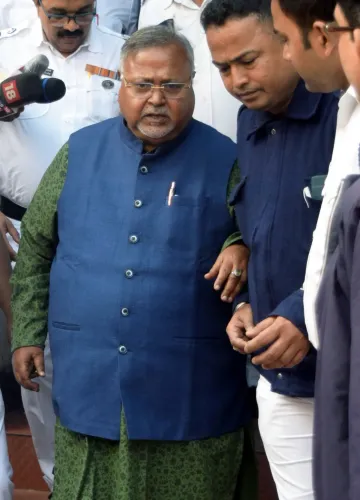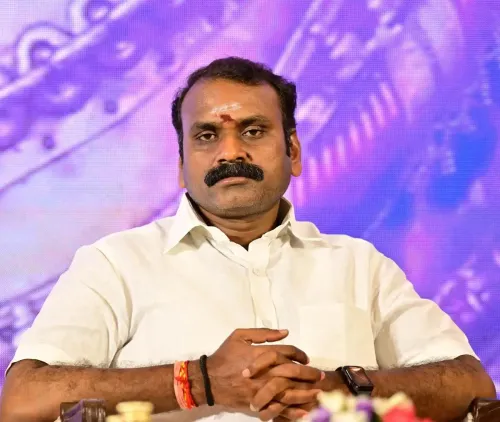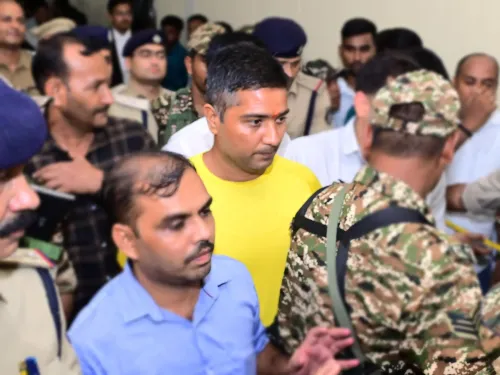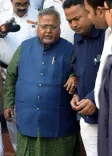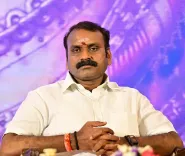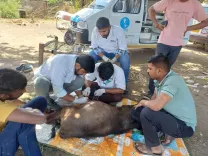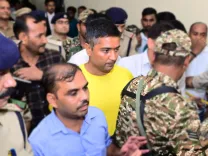Why Must Regional Parties Prioritize National Security?

Synopsis
Key Takeaways
- National security is a shared responsibility among all political parties.
- Every citizen must remain vigilant against rising threats of terrorism.
- The roots of terrorism are spreading into local communities.
- Radicalization is a pressing issue that requires attention.
- Proactive measures need to be taken by institutions and individuals alike.
Amaravati, Nov 12 (NationPress) - The Deputy Chief Minister of Andhra Pradesh, Pawan Kalyan, emphasized on Wednesday that regional political parties must not disregard or set aside national security as merely the responsibility of national parties.
The leader of Jana Sena asserted that national security should be prioritized as an urgent matter on the agenda of all political parties in India.
In a detailed post on ‘X’, the actor-turned-politician expressed concerns regarding the alarming spread of terrorism across the nation.
He remarked that the ultimate responsibility for protecting and strengthening Bharat lies with every citizen.
“The roots and connections to terrorism are rapidly proliferating throughout the nation, infiltrating the core of our communities. This is not a remote issue. Recently, a terror plot associated with ISIS ideology was thwarted by the NIA and other agencies, preventing planned IED attacks targeting both Andhra Pradesh and Telangana. The sobering truth is that security threats and terrorist activities are now emerging from unsuspected, quiet towns and villages,” Pawan Kalyan wrote.
He underscored that national security is not solely the responsibility of the Central Government; it is a duty that extends to every State government, every government department, and every local body—from village panchayats to the national capital.
“Each entity has an undeniable, shared responsibility. Regional political parties cannot afford to disregard or sideline national security as a concern for only national parties; it must be a primary focus on the agenda of every political party in India, regardless of the region they represent. No political agenda should supersede the safety of the nation,” he stated.
The Deputy CM expressed alarm over the increasing radicalization.
“Radicalization is taking place right in our neighborhoods, and we, as citizens, are regrettably turning a blind eye. This pervasive threat necessitates that every institution become a stronghold of defense. Every neighborhood, school, college, university, office, professional organization, religious institution, and police station across the nation must remain vigilant. Constant vigilance is not just the government’s job; it is the fundamental responsibility of every citizen in India. The price of complacency is far too great to endure.”
“While our brave armed forces can combat external enemies and guard our borders, who will protect us from the divisive forces that seek to undermine our nation from within? The challenges posed by pseudo-secularism, appeasement politics, and the promotion of linguistic and regional pride over national unity are not mere political tactics—they are calculated attempts to weaken the very foundation of our democracy,” he added.
Pawan Kalyan urged citizens, especially the youth, not to remain passive bystanders and squander their energies on trivial matters and manufactured controversies. “As we become embroiled in conflicts over religion, caste, language, and regional politics, external forces are striving to destroy the very fabric and essence of Bharat. Look beyond the distractions; be accountable. The ultimate responsibility for safeguarding and strengthening Bharat rests with every citizen,” he said.
He commended the individuals in the Intelligence and Security Forces, recognizing them as true unsung heroes.
“These patriots serve our nation day and night, quietly, without seeking acknowledgment. Their silent efforts prevent unimaginable mass casualties and maintain the security and peace of our country. They avert disasters that we cannot even begin to imagine. Consider the potential horror that was averted recently—what could have transpired if those 2,900 kilograms of IED-making materials, hidden caches of assault rifles, or sinister plans to deploy ricin poison had not been intercepted? We owe them everything for neutralizing threats before they ever reach our streets.”

